The Important Core Values and Morals to Teach Your Child

Navigating the path of parenthood and wondering what core values to instil in your child for a fulfilling life? Discover key values such as honesty, gratitude, empathy, and many more in our comprehensive guide
Shaping a life is no small feat, and all parents hope to teach their children the most important core values and morals so they will lead successful, healthy, and fulfilling lives. At the same time, the prospect of instilling big-picture values like honesty, integrity, and perseverance can be intimidating, to say the least.
The important thing to remember is that you don’t need to teach your children these lessons all at once. Instead, they can learn about the most crucial values and morals over time in small moments.
Furthermore, one of the most powerful ways to instil positive values in your children is to lead by example. By exemplifying the morals and values you believe are essential, your children can see a real-life example of these concepts in action.
Which values should you focus on demonstrating and teaching to your children, you ask? Let’s look at some essential ideas to help them grow into successful and healthy adults.
Honesty
Honesty is often called the best policy for good reason. It is undeniably one of the most crucial core values and morals that parents should instil in children.

Honesty goes beyond mere truth-telling; it is a fundamental principle that forms the foundation of trust, integrity, and ethical behaviour. This isn’t just a desirable trait but an essential one for future success and personal development.
Honesty is the cornerstone of trust. When children learn to be honest, they earn the trust of those around them. Trust is precious in personal relationships, friendships, and professional interactions. Children who are known for their honesty are going to be much more likely to be trusted by peers, teachers, and employers.
Beyond that, honesty helps to foster integrity (another core value on our list), promotes ethical behaviour, boosts communication skills, and helps your child develop responsibility (yet again, another value we’ve pinpointed as essential for passing on to your children.)
Gratitude
Teaching children to be thankful and appreciative of what they have can help shape their character and promote their well-being.

In a world filled with distractions and desires, teaching children gratitude is essential for fostering positivity, empathy, resilience, and a deeper appreciation for life.
Helping children learn gratitude lets them focus on what they do have, not what they don’t. This way, they can feel happy and content, appreciating the simple things in life.
Being thankful helps children see life in a positive light, makes them stronger when facing tough times, and helps them build good relationships with others. It also encourages them to give back to people and their community.
Empathy
The ability to understand and share the feelings of others is a fundamental core value and moral that plays a pivotal role in the development of compassionate, emotionally intelligent, and socially responsible individuals.

Teaching children empathy goes beyond instilling a sense of kindness; it empowers them to connect with and positively impact the world around them.
It’s more than just being nice to people. It’s about understanding how others feel and caring about them. When children learn empathy, they become more understanding and can get along better with others. It helps them build strong relationships and communicate better.
They learn to appreciate how different and diverse everyone is, which helps them be responsible and considerate.
Respect
Respect serves as the cornerstone of healthy relationships, social harmony, and personal growth.

If your goal is to raise responsible, empathetic, and well-rounded individuals, respect is one of the crucial values you’ll want to instil in them.
Are you considering investing in life insurance, but you aren’t sure whether it’s the right choice? Make sure you look at our article exposing the truth about life insurance myths and our guide to life insurance savings plans.
Cooperation
working together harmoniously towards a common goal will be relevant at every stage of your child’s life.

By teaching them how to be cooperative, you are helping shape them into the empathetic, responsible, and successful individuals you hope they will one day grow up to be.
Teaching children cooperation goes beyond teamwork; it instils the foundation for healthy relationships, effective communication, and community building.
Courage
We all want to protect our children from the darker parts of life, but the truth is that helping them learn to be courageous at a young age is one of the best things you can do to prepare them for the future.

Helping them learn how to confront fear, pain, danger, and uncertainty plays a crucial role in helping them become resilient, confident, and compassionate individuals.
Teaching children courage is not about encouraging recklessness; rather, it is about empowering them to face adversity, make ethical choices, and become confident problem solvers.
Acceptance
Acceptance is crucial to teach your children in our increasingly interconnected and diverse world. This isn’t just a fundamental ethical principle but also one that fosters empathy, tolerance, and social harmony.
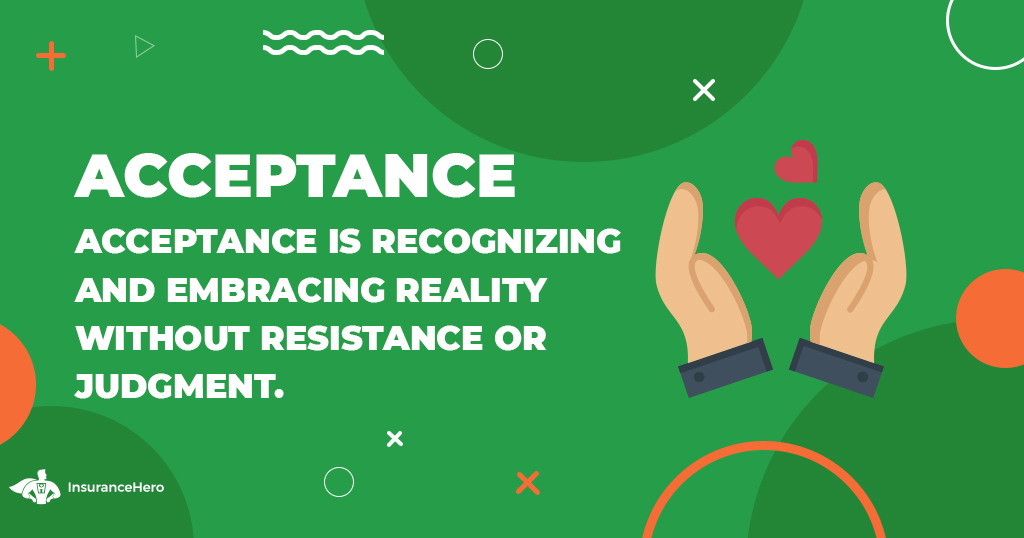
When you teach your children to be accepting of other people and other views, you are helping enhance their emotional intelligence, encourage open-mindedness, and build their self-esteem.
It also helps foster a sense of social responsibility, providing them with the foundation they need to create positive change in their communities and the broader world.
Responsibility
As your children grow older, they can take on more and more responsibility. Responsibility is more than just completing chores or fulfilling obligations; it encompasses a range of behaviours and attitudes that contribute to their personal development, success as an individual, and even the well-being of society.
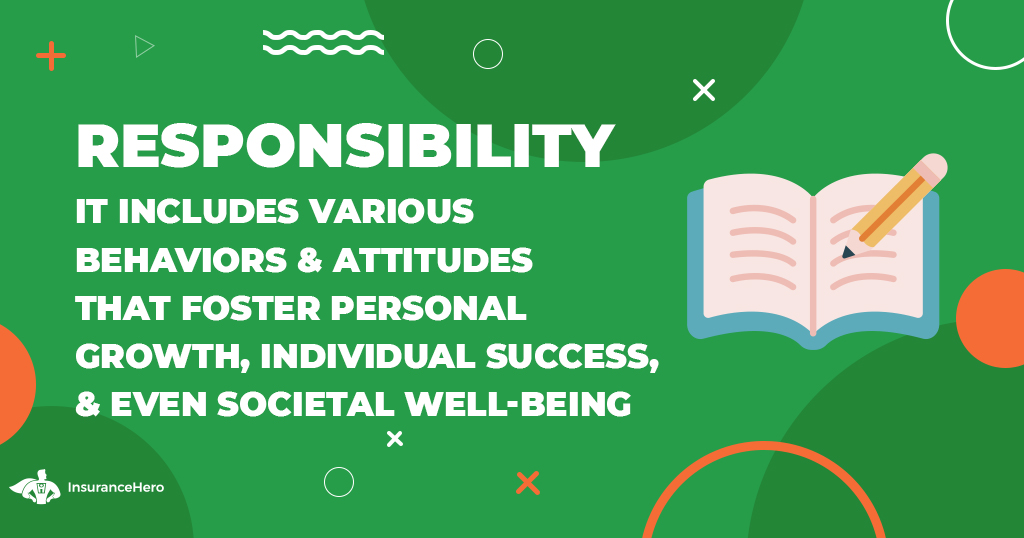
Teaching children about responsibility is about helping them understand that their actions have consequences and they must be accountable for them.
Children must learn the importance of fulfilling their duties and obligations, whether completing homework, doing chores, or being reliable friends. Responsibility lays the foundation for a well-balanced adult life, helping children grow into dependable, self-sufficient individuals.
To teach responsibility, allow children to take on age-appropriate tasks, let them experience the results of their actions, whether good or bad and offer guidance and support.

Secure Your Child’s Future Today
Get a Free Life Insurance Quote in Minutes and Ensure a Bright Future For Your Child – No Matter What
Click Now For A Free Quote >>Self-Control
The ability to manage one’s emotions, impulses, and behaviour is a fundamental life skill that will serve your children for the rest of their lives.
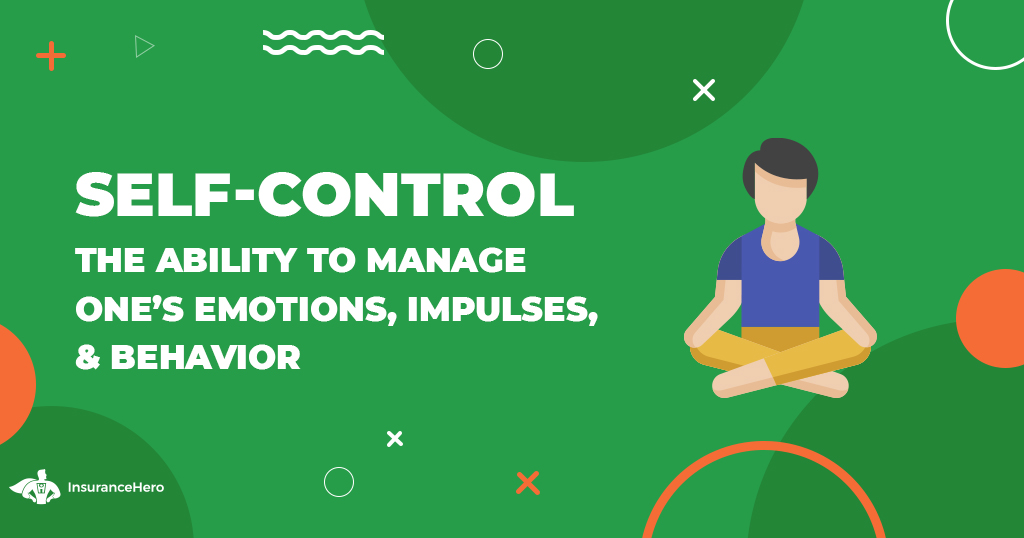
When you teach your children the value of self-control, you can help them learn how to regulate their own emotions in a healthy and constructive manner. This will allow them to build better relationships and avoid impulsive reactions.
Children can also learn to make better decisions when they are able to consciously control their own behaviour and impulses.
When they can resist immediate gratification and think about long-term consequences, they are more likely to make choices that lead to positive outcomes in various aspects of their lives, including academics, health, and relationships.
Perseverance
Commonly referred to as “grit,” perseverance is the ability to persistently work toward a goal despite facing obstacles, setbacks, and challenges.

This teaches children that failure is not the end but a part of the learning process, helping them understand that setbacks are growth opportunities.
This makes them much more likely to bounce back from failures with determination and resilience.
Beyond that, teaching your children perseverance as a core value helps them develop a strong work ethic, have the ability to set and achieve long-term goals, improve relationships, and build strong problem-solving skills.
Resilience
Resilience is the capacity to bounce back from adversity, grow through challenges, and thrive despite difficult circumstances.

Even though we all want our children to have easy, peaceful lives, it’s essential that we prepare them for the obstacles that they will inevitably face.
Resilience equips children with the skills to manage stress, anxiety, and other negative emotions effectively. It fosters emotional well-being by teaching them to bounce back from setbacks, which is crucial for mental health.
Children who have learned the value of resilience are also more adaptable to change and uncertainty.
They can more easily and confidently navigate transitions, such as moving to a new school, adapting to technological advancements, or dealing with unexpected life events.
Teaching children to make lemonade from life’s lemons also instils resilience, showing them how to transform challenges into stepping stones for growth and success.
Self-Respect
When teaching your children the most important morals and values, self-respect is just as important as having respect for others.
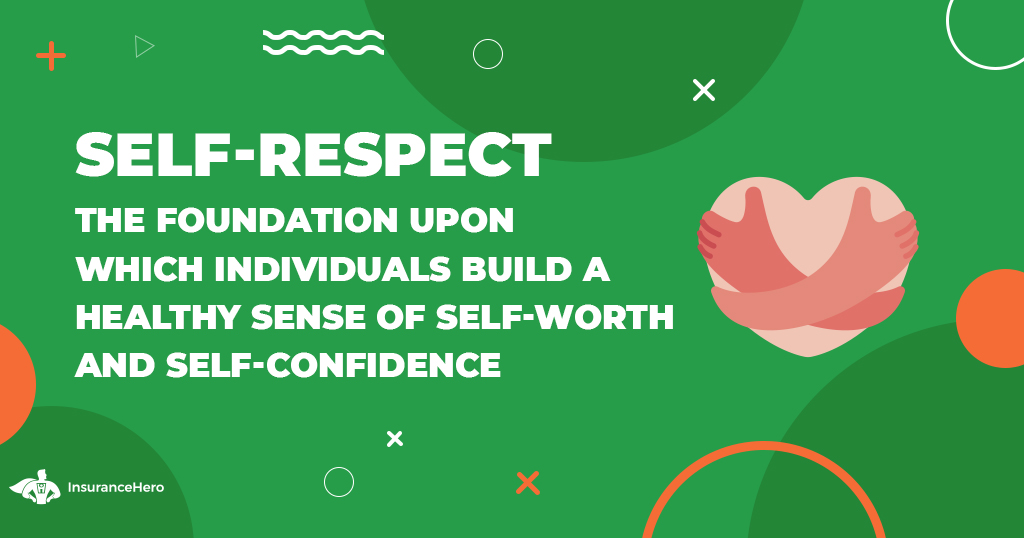
Self-respect is essential for their self-esteem, personal development, and overall well-being. This is the foundation upon which individuals build a healthy sense of self-worth and self-confidence.
Self-respect is closely linked to healthy self-esteem. When children learn to value and respect themselves, they develop a positive self-image and a strong sense of self-worth. This, in turn, leads to greater self-confidence and the ability to pursue their goals and dreams.
You’ll also find that the more self-respect your child has for him or herself, the more resilient they will be in the face of adversity. They are more aware of their strengths and limitations, enabling them to bounce back from setbacks and persevere through challenges.
By teaching your children self-respect, you’re also setting them up to have positive, healthy relationships with others. Children who respect themselves are likelier to establish boundaries, make choices that align with their values, and engage in mutually respectful and supportive relationships.
Integrity
Integrity is the quality of honesty and strong moral principles, including truthfulness, fairness, and consistency.

When you teach your children the value of integrity, you’re setting them up to make ethical decisions throughout their lives, earn the trust and respect of their peers, teachers, and family members, and hold a sense of personal accountability.
Teaching children to do the right thing even when no one is watching helps them to develop a strong inner compass.
Parents and educators can instil integrity by being role models of honest behaviour, discussing moral dilemmas, and praising children when they demonstrate honesty and reliability.
Generosity
Generosity is the act of giving without expecting anything in return, whether it’s through sharing time, resources, or kindness.

When children are taught the importance of being generous, it helps foster empathy and compassion. When they learn to share and give to others, they develop a greater understanding of the needs and feelings of those less fortunate, leading them to grow into more caring individuals.
This value is not just about giving material possessions; it’s about fostering a spirit of kindness and a willingness to help others.
Consider encouraging your children to share their time, talents, and resources with others, demonstrating the joy of giving without expecting anything in return. Participate in community service or charitable activities together, showing children the impact of generosity on both the giver and the recipient.
Compassion
Compassion is the ability to understand and empathise with the suffering and needs of others, coupled with the desire to alleviate that suffering.

Teaching your children this crucial value helps foster the development of empathy. Empathy allows children to understand better and connect with the emotions and experiences of others, which is the foundation for forming positive relationships and engaging in prosocial behaviours.
Beyond that, this will be a critical tool for your children as they encounter conflicts and work to resolve them. Children taught compassion are more likely to approach conflicts with a willingness to understand and find mutually beneficial solutions, leading to healthier and more peaceful relationships.
Teaching your children compassion toward others will also benefit their mental health. Children who practice compassion experience greater emotional well-being, reduced stress, and increased self-esteem.
Humility
Humility is the quality of recognising one’s limitations, being open to learning from others, and showing modesty and respect for others regardless of their status or achievements.

This core value often gets a bad rap, as it’s frequently misunderstood to mean that one should see themselves as less than others. True humility, however, is the quality of understanding one’s values while also respecting the values and opinions of others.
Humility encourages children to empathise with others and consider their perspectives and feelings. It fosters a sense of connectedness and compassion, helping children build stronger, more meaningful relationships.
This value also helps them develop self-awareness, as they can be honest about their limitations and imperfections. Therefore, they are set up to work on their personal growth and self-improvement as they age.
Accountability
Accountability is the principle of taking responsibility for one’s actions, choices, and obligations.

This critical value is closely linked to ethical decision-making. Teaching children to be accountable helps them understand the moral implications of their actions and make choices that align with their values.
It also encourages personal growth and self-improvement, as children who take responsibility for their actions are more likely to reflect on their mistakes, learn from them, and strive to become better individuals.
Curiosity
Curiosity is the desire to explore, learn, and seek knowledge about the world. It is a fundamental quality that drives innovation, creativity, and a thirst for understanding.

The truth is that curiosity is the engine of intellectual growth. When children are encouraged to ask questions and explore new ideas, they develop critical thinking skills, problem-solving abilities, and a broader knowledge base.
Teaching them to be curious rather than jump to conclusions or fixed in their perspectives also instils a love for lifelong learning, helping them become self-motivated, independent learners.
Self-Awareness
Self-awareness is the ability to recognise and understand one’s own thoughts, emotions, strengths, weaknesses, and values.
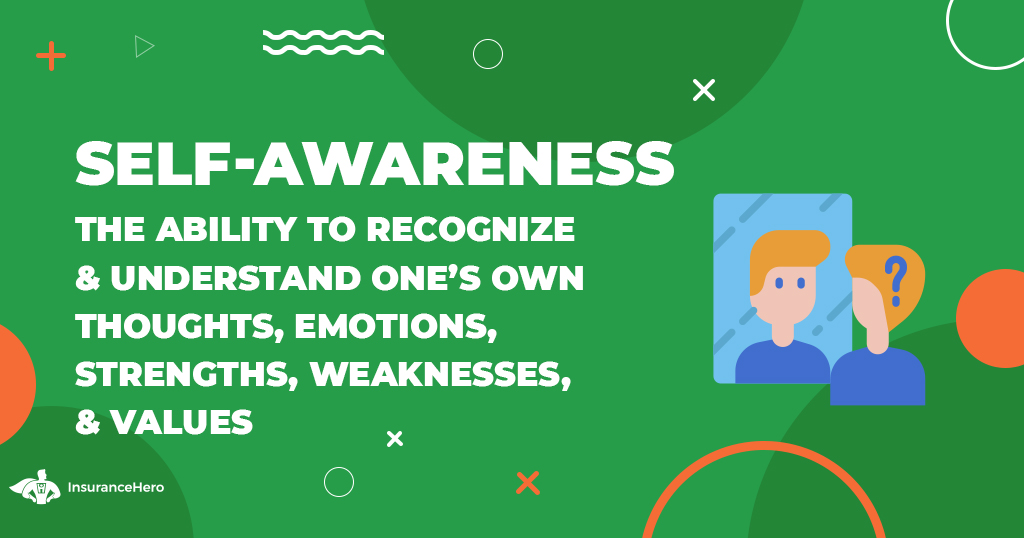
This foundational element of emotional intelligence helps children identify, manage, and express their emotions effectively. This, in turn, leads to healthier emotional well-being and improved relationships.
By learning how to be self-aware, your children will be able to make better decisions, resolve conflicts more successfully throughout their lives, and acquire the necessary skills to engage in personal growth.
It will also do wonders for their communication skills and help them build strong and healthy relationships.
Forgiveness
As a child, it can be hard to let go of resentment, anger, or negative feelings towards someone who has caused harm or offence.

However, teaching them the importance of forgiveness can be invaluable. It can help them heal emotionally, resolve conflicts, and manage stress and anxiety.
Teaching forgiveness helps children learn that everyone makes mistakes and that moving past them is essential. Explain the importance of letting go of anger and resentment for their peace of mind and provide them with tools and examples of forgiveness.
Use stories and real-life situations to demonstrate the power of forgiveness in healing relationships and building a supportive, loving community.
If I Die And I Have Not Taught My Child Well, What Happens?
Life Insurance is very affordable because you are very unlikely to die. But, starting at an early age, you must try to teach your child the best forms of right and wrong.
It doesn’t matter if you are a single mum looking for life insurance, a hardworking Dad or a young adult couple; life insurance with a low average cost will help the financial needs of your child, but the child will not have the crucial influence from a woman, which is their mother.
You may need to consult a solicitor and get agreements from family or a close friend who could look after your child if something happened to you. Your family life insurance cover could be configured to be given to the agreed carer of your child and be in the form of a family income benefit policy.
A solicitor could be used to ensure your child still has access to private education and private healthcare through the insurance payout.
Also, if part of your influence on your child should be based on your child attending a religious school, a solicitor could help you with that.
If you have pre-existing health conditions or have a family history of health issues that could be hereditary, this is something you should consider as a further risk factor.
Providing Financial Security for Your Family Through Life Insurance
Teaching your children the essential core values and morals can help set them up to lead the best possible lives. You want the best for your children, and you want to know that they will be cared for until they have grown into responsible, mature adults capable of caring for themselves.

If you’ve ever worried about what would happen to your family if something were to happen to you, you might be interested in learning more about your life insurance options.
If you want to make sure your family will have the financial support they need no matter what happens, you can compare quotes from the UK’s leading insurers using our free tool.
Frequently Asked Questions
What are the most important values I should teach my children?
Honesty, gratitude, empathy, respect, and responsibility are essential values to teach your children. Start teaching these values early to help your children grow into caring and ethical adults. Make sure to adapt your teaching to what your children need and can understand.
How can I teach my children about honesty and integrity effectively?
Be a clear example of honesty and integrity in your daily life. Use real-life situations to talk about why honesty and integrity are important. Explain that these values help build trust and good relationships with others.
How can I encourage empathy and compassion in my child?
Make your home a place where everyone talks about their feelings openly. Please encourage your child to talk about their feelings and think about how others feel. Introduce them to different cultures and situations to help them understand other perspectives. Emphasise the importance of helping others by doing volunteer work as a family.
How can I teach my children about responsibility and accountability?
Give your children age-appropriate chores and tasks, and let them know what happens if they don’t complete them. Use mistakes as chances to learn, talking about what happened and how different choices could lead to different results. Encourage them to take responsibility for their actions and think about the consequences before making decisions.
How can I help my child develop self-control and resilience?
Help your children learn to understand and manage their emotions. Teach them ways to calm down in tough situations and work with them on solving problems. Let them face challenges and make mistakes, and be there to support and encourage them as they figure things out and learn from these experiences.
Steve Case is a seasoned professional in the UK financial services and insurance industry, with over twenty years of experience. At Insurance Hero, Steve is known for his ability to simplify complex insurance topics, making them accessible to a broad audience. His focus on clear, practical advice and customer service excellence has established him as a respected leader in the field.


